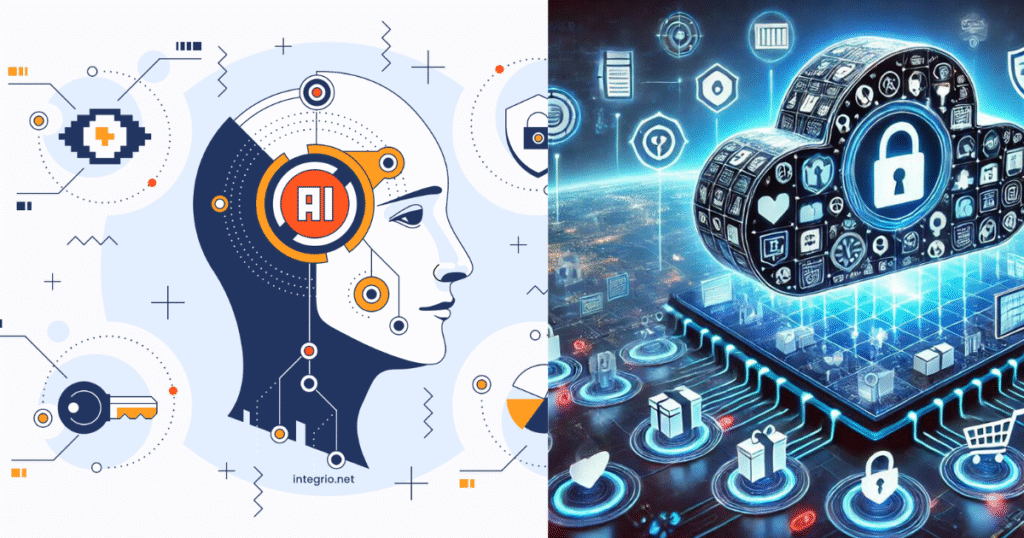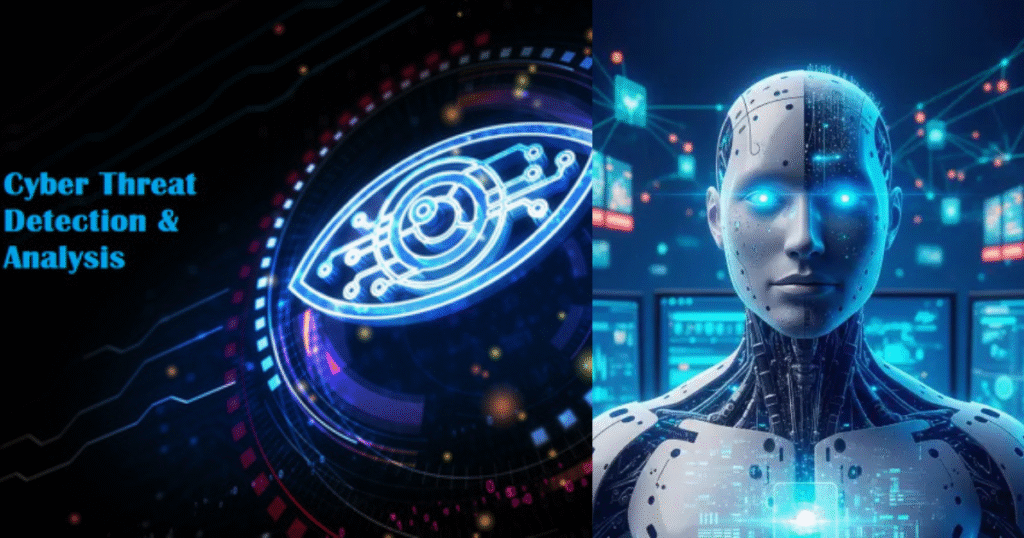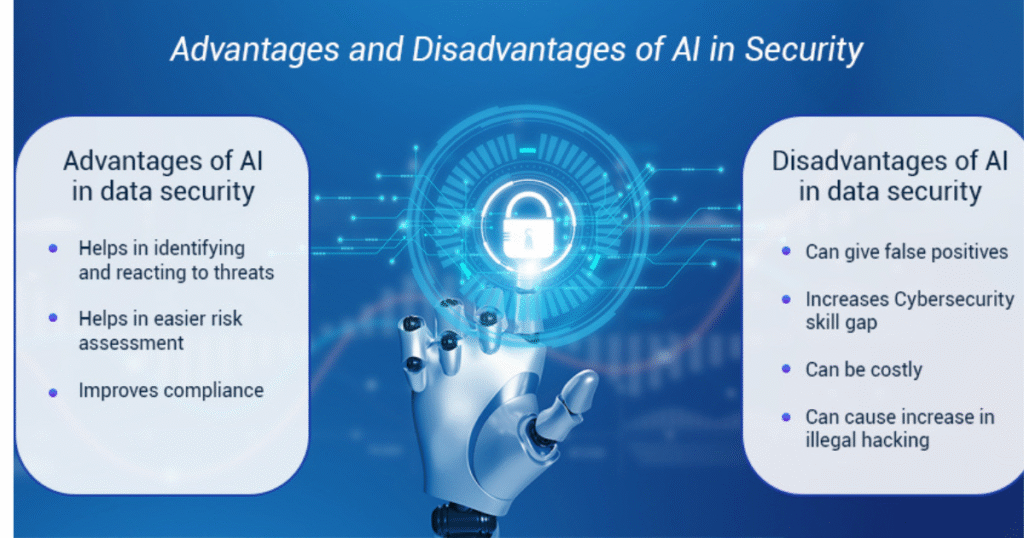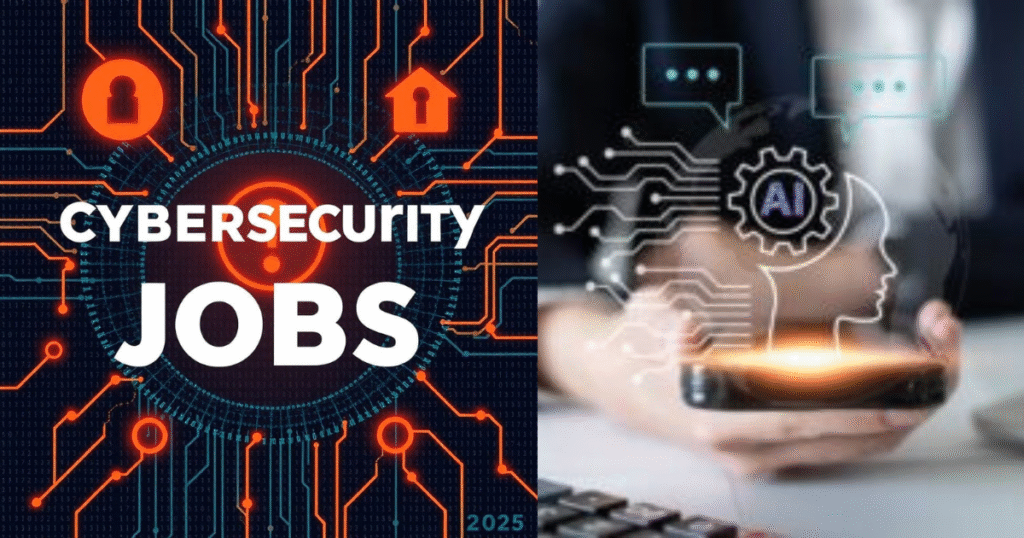
AI has already become an online security power of Artificial Intelligence. It protects the computers, the networks and data against cyber crimes such as hacking, phishing and ransomware. Artificial intelligence has the capability to process vast quantities of data, identify a threat quicker than a human, and react to it promptly. It goes as far as training on past attacks to improve future defenses. Businesses are also becoming more dependent on AI to keep them safe in the digital world that continues to witness increased cyberattacks daily. Even the future of AI is changing. The Rise of AI in Cybersecurity: Opportunities and Challenges.
AI in Cybersecurity

Cybersecurity is now being enhanced with the help of AI (Artificial Intelligence). It serves to guard computers, networks, and data against hackers and other threats over the internet by scanning through large volumes of data and identifying issues early and assisting in standardizing quicker reactions by the team. Machine learning is also one of the aspects of AI that can assist individuals in making improved decisions regarding their safety on the internet. This implies that the system becomes aware of previous attacks and could be able to observe the same in the future such as unusual logins or abnormal traffic. Deep learning is a more sophisticated one as it can identify more difficult to detect threats by viewing more detailed data. AI can monitor the system 24/7, identify threats and even prevent them on time. It also scans the entire network to identify areas of weakness that a hacker may exploit.AI also learns how a system should behave. In this way when something out of the ordinary occurs, it can prevent access or issue an alert. It is also able to inform which threats are the most critical and can even prevent viruses or hacking even before they cause harm.
AI is also useful, as it can perform the same tasks automatically and save time on people and decrease mistakes of people.
AI for Threat Detection and Response

Artificial intelligence is now being applied by hackers to make their attacks quicker and more difficult. Therefore, AI must also be used by security teams to identify threats in a timely manner.AI can process a vast amount of data within a very short period and detect suspicious behaviour that could be overlooked by individuals. It assists in securing networks, devices and prevents fraud.AI employs intelligent programs which learn and monitor how individuals interact with systems. It may also be automatic in preventing attacks. The more it is done, the more intelligent it becomes about detecting new threats before they can cause any issues.The more information on a network it has to scan, the more it informs you in case something seems suspicious.The Rise of AI in Cybersecurity: Opportunities and Challenges.
Advantages and Disadvantages of AI in Cybersecurity

Good cybersecurity is no longer a choice anymore, but an inevitable step towards ensuring businesses remain safe and continue operating. Nowadays, AI (Artificial Intelligence) is a formidable weapon of guarding systems, data, and networks. It finds application in various applications, such as identifying phishing attacks or making an AI chatbot respond to security questions in a few seconds.
AI may be considered as a future thing with all the hype about self-driving cars, robots, and intelligent machines. However, as a matter of fact, AI is already an enormous aspect of our life. Unless you are using your face to unlock your phone or Netflix is recommending you a movie, AI is in the background.
So, what is AI really? and what is it doing to the world we live in? Here, we will examine the positive and negative aspects of AI, and the way it is gaining relevance in our daily lives.
Artificial intelligence has made a great difference in cybersecurity. It assists professionals to identify and prevent threats quicker. It improves areas like:
Threat detection – identifying threats in time.
Response time- rapid action to prevent attacks.
Predictive analytics – making guesses of what can go wrong.
Security alerts- notifying teams about problems.
Patch management – automatically fixing software bugs.
AI is used to make systems wiser, quicker, and safer- securing individuals and companies.
AI and Cybersecurity Jobs

Ensuring that we possess good cybersecurity is now more than ever before to secure organizations, governments, and even nations against cyber threats. With the increased use of digital devices, Internet relationships, as well as storage and sharing information, the possibility of being attacked in various ways has increased. Phishing, identity theft, and ransomware are increasingly frequent and more massive cyberattacks.The Rise of AI in Cybersecurity: Opportunities and Challenges.
As AI technology is rapidly expanding, it is becoming obvious that AI is becoming closely intertwined with cybersecurity, and this is altering the shape of cybersecurity careers.
AI and Cybersecurity Trends

Cyber threats are continuously threatening businesses- millions of attacks occur per day, and the traditional security system, as well as the human workforce, cannot cope with it. Gartner says that security leaders have a difficult year ahead of them in which they need to balance the call to grow and change business and not to compromise their security. When done well, it enables organizations to develop and to innovate rapidly, and remain safe and robust in an increasingly digitalized world that moves rapidly. The importance of AI in the space is quite significant, with the number of companies investing and adopting the technology increasing at rapid rates.
How can AI be used in cybersecurity?
AI use helps in real time data attack prevention, effective data analysis, identification of threats and the notification of teams about attacks and threats. It also finds out the vulnerable points in the system and learns through previous attacks.
What is machine learning and what is its application in cybersecurity?
Machine learning is a form of AI that is trained on previous data and attacks. It prevents prospective threats of a similar kind due to the identification of unusual behaviors such as suspicious logins or traffic.
Is AI relevant to threat detection and response?
With AI, it is possible to analyze vast data within a relatively small time span, detect suspicious activity, and take action. This helps in identification of the threats which may go unnoticed by the human being and he/she does not suffer.
What are the advantages of using AI in cybersecurity?
Some advantages include faster threat detection, quicker response times, predictive analysis, automatic software patching, and fewer human errors.
What role is AI playing in the cybersecurity sector?
AI is transforming the functional area of cybersecurity by automating routine activities and necessitating human involvement in using AI equipment. This change implies that people require skills that are not relevant in managing AI-oriented systems.
conclusion
Artificial Intelligence is transforming how we secure our cyberspace. It can process huge amounts of data, detecting deviant behavior and even countering attacks in progress. By the past, AI will become smarter with time and avoid problems in the future. It also minimizes human error by making repetitive work automated and allowing specialists to devote more time to larger problems. The Rise of AI in Cybersecurity: Opportunities and Challenges. Although AI will make the world safer, it still requires human beings to operate and control it. It means that AI needs cybersecurity experts to collaborate with it and train new skills to keep up with hackers.. Cyberattacks are increasing and AI will remain a powerful partner in helping to secure computers, businesses, and personal information.



